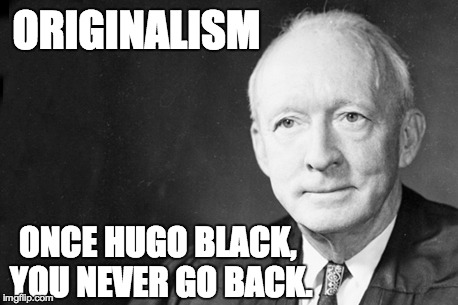One of the leading arguments by the defenders of the IRS rule in Halbig, is that none of the states seemed to be aware of such a significant limitation on subsidies for states that do not establish exchanges. During oral arguments in the D.C. Circuit, Judge Edwards asked:
“How did all the states miss this? […] Indeed one of the brief’s points is that no state made the equation that the availability of subsidies was a factor in deciding whether to create an exchange. No one.”
Britanny La Couture of the American Action Forum has a detailed report showing at least two states seemed to be aware of this reading of the statute.
First, Idaho seemed to establish an exchange, out of a concern that Idahoans would not be eligible for subsidies on the federal exchange.
On July 13, 2012, two weeks after NFIB v. Sebelius was decided, and the relevant constitutional questions had been addressed, Governor C.L. ‘Butch’ Otter of Idaho created the Health Insurance Exchange Working Group to research and answer questions faced by state legislators in determining whether to establish an Exchange.[19] The Group was led by the Idaho Director of Insurance, Bill Deal. On October 30, 2012, the Working Group’s Exchange Subcommittee produced a report on the relative advantages and disadvantages of each type of Exchange.[20] The report states:
There are some opinions that should the State of Idaho adopt a SBE [State-Based Exchange], the businesses of Idaho may lose the chance to sue the federal government over the tax for not offering a health insurance plan to its employees… If we don’t do a SBE, others are saying that any subsidies that would be available to the State would not be available if Idaho chooses not to set up its own SBE.[21]
Chairman Shore also delivered notes to Governor Otter in which the Subcommittee expressed “concern that if Idaho sets up an exchange, an entitlement will be stablished with regard to subsides.”[22] The Subcommittee also informed the Governor that “[w]e do not know what the partnership will look like at this point […] Will subsidies be available with a partnership arrangement?”[23] In their discussion of “The Bad” aspects of not establishing a state-based Exchange, the Subcommittee noted “there has been much talk about the idea that federal subsidies would not be available in a federal exchange.”[24]
In a report to the Governor prepared by the Idaho Freedom Foundation and submitted by Rep. Lynn Luker and Working Group member Wayne Hoffman on October 25, 2012, it is argued that absent a state-based Exchange and the attendant federal subsidies, 107,000 Idahoans would find health insurance unaffordable by the ACA’s definition.[25] The resulting “affordability exemption” from the individual mandate was viewed by Idaho Freedom Foundation as a positive aspect of refusing to establish an Exchange, but comments later made by governor Otter and his administration reveal they may have viewed this feature of the ACA as both a carrot and a stick, urging them towards establishing the Exchange.[26]
On December 11, 2012, Governor Otter changed his official position[27]and announced Idaho’s intention to establish a state-based Exchange.[28]On March 28, 2013 he signed into law HB 248, which established the Idaho Health Insurance Exchange called Your Health Idaho.[29] Despite relying in part on the federal application technology, Idaho spokespeople have made clear that “Your Health Idaho has always been a state-based exchange.”[30]
Second, Indiana was cognizant that the employer mandate would not be triggered if not state exchange was created. The reason why the mandate would not be triggered is because subsidies were not present to drive down the cost of plans.
Indiana, for example, was committed early to establishing a state-based Exchange.[31] On November 15, 2012, Governor-elect Mike Pence wrote a one-page letter to then-Governor Mitch Daniels expressing his opposition to establishing an Exchange in Indiana.[32] He lists uncertainty about costs and benefits alongside “[l]egal uncertainties such as whether the employer tax penalty even applies to businesses in the absence of a state-based exchange” as reasons for declining to establish an Exchange.[33] With these considerations in mind, Governor Pence ultimately allowed Indiana to default to the federal Exchange.[34] In the wake of recent court rulings indicating that Hoosiers may be ineligible for subsidies in the federally-facilitated Exchange, Pence said he “hope[s] it causes Congress to rethink Obamacare. Ordering every American to purchase health insurance whether they want or need it or not was the wrong idea to begin with.”[35]
These factoids are quite helpful, as it helps me piece together the timeline for Unraveled. In general, before the Court upheld the mandate in NFIB, there was so much uncertainty, and its not surprising that most states didn’t bother drilling into the depths of the ACA arcana. Now, maybe we will find out the full story.

